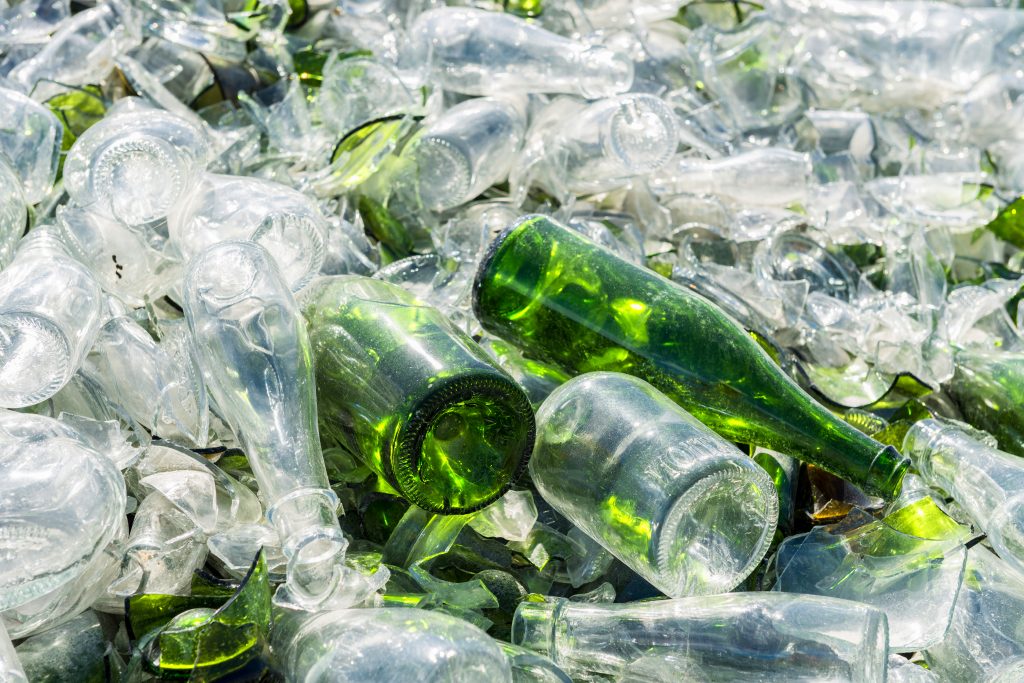Defra’s review of provisional glass costs in EPR scheme may be “too late” for businesses
Defra’s proposed review of “eye-watering” estimates for its extended producer responsibility (EPR) scheme may come too late for many businesses to plan adequately, the WSTA has warned.

The review follows the publication last Thursday (15 September),of initial estimate of fees for the scheme, which will be introduced in April 2025, based on data collected from the PackFlow Refresh 2023 report. The provisional estimates were released in order to give some clarity to businesses, with more refined provisional costs due to be released next month and final costs in April 2025, however the initial estimates numbers are significantly higher and more wide ranging than many had estimated, causing a backlash.
British Glass claimed the way packaging materials will be charged – by weight rather than a unit-based approach – will put “a disproportionate burden on the glass industry compared to other materials”, trade publication Materials Recycling World reported, calling for the scheme by calling for it to be delayed while the proposed fee structure is reassessed.
“These fees are much higher than expected, and British Glass fear implementation without revision could lead to significant job losses within the glass industry due to material switching,” Nick Kirk, technical director of British Glass was reported as saying.
Following a meeting with stakeholders this week, Defra said it would review the way it calculates the fees and will “consider” a volume-based approach versus using a weight-based approach. Figures on modulated fee rates will be issued in the autumn.
However, in a statement to db today, Miles Beale, chief executive of the Wine and Spirit Trade Association (WSTA) said while the WSTA was pleased that further work is being undertaken to refine the indicative fees, particularly for glass, for many businesses the detail will come too late.
“EPR fees are due from 1 April 2025 and many businesses will have already negotiated contracts and set their prices for the next financial year,” he said, adding that although the drinks industry had been waiting months for an indication of the EPR fees, “sadly, last week’s publication of provisional costs will do little to reassure obligated businesses or provide a basis on which to plan”.
He pointed out that the figures quoted last week could add anything from 4p to 10p on the lightest weight glass bottle and more than twice that for a sparkling wine glass bottle.
“Businesses need far greater certainty in order to plan for and account for their new obligations under EPR,” he said. “We remain concerned that rushing the introduction of EPR will lead to failure, while simultaneously increasing costs and creating uncertainty for businesses that are still reeling from the impact of last year’s double digit rise in excise duty.’
Emma McClarkin, CEO of the British Beer and Pub Association, said the provisional fees had reinforced her concerns about “the eye-watering additional costs brewers will be expected to bear from next year and impact on customers”, despite the sector’s commitment to “working collaboratively to achieve circular economy goals”. She called on the government to recognise the cumulative impact of their packaging reforms at the upcoming Budget and cut beer duty “to safeguard Britain’s brewers and ensure the UK remains an attractive place for investment.”
“These preliminary figures could add up to 7p on each of the 3.2 billion bottles of beer sold in the UK annually, which would mean up to £212m in total. This could be the equivalent of a 21% beer duty increase on these products and inevitably will lead to price increases for consumers,” she said.
Partner Content
A Defra spokesperson told db:“Extended producer responsibility for packaging is a vital first step in cracking down on waste as we move towards a circular economy, and we have always been clear these fees are our initial estimates.
“In line with our collaborative approach to deliver pEPR, we are continuing to meet with the glass industry to discuss more workable approaches, including for how we calculate the cost of glass.”
Defra pointed out that the industry had been engaged with throughout this process and it would continue to work with them as the final fees are developed.
It also noted that the UK’s illustrative base fee estimates were roughly on the same scale as other countries fees, although differences in the waste infrastructure and waste management in different countries made comparisons difficult.
Back in May, the WSTA called for wine businesses and retailers to start factoring in additional costs of extended packaging regulations into their forecasts, warning that there might be “potential significant costs” businesses needed to factor into your planning.
UK businesses who produce or use packaging have had to enrol in the Government’s Recycling Packaging Database (RPD), with companies with an annual turnover of £1 million or more – and responsible for more than 25 tonnes of packaging in 2022 – recording their data, while smaller organisations (with a turnover between £1m to £2m) need to start recording their data, which will need to be reported bi-annually from 2025.
21/8/24: amended to include a comment from Defra.
Related news
On the fourth day of Christmas…




